Anyline Bets On AI To Drive Innovation For Automotive & Tyre Inspections
- By Nilesh Wadhwa
- August 25, 2025
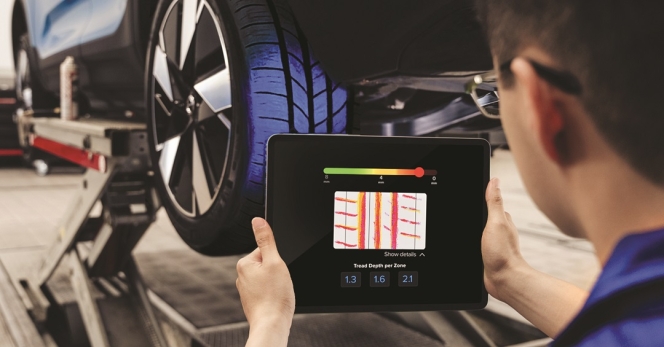
Anyline, a global leader in AI-powered mobile data capture, is disrupting industries by enabling instant scanning of everyday data with smartphones.
In an era where data is king, Vienna-based Anyline aims to carve out a significant niche, transforming everyday data capture into a seamless, mobile-first experience. What began as a computer vision research project, exploring the intricate ways machines could ‘see and interpret the world’, has blossomed into a global commercial platform.
This evolution was driven by a clear recognition of how urgently businesses across various sectors needed reliable, efficient and mobile-first data capture solutions. Anyline’s innovative approach now empowers frontline workers across diverse industries, from the complexities of logistics and the precision of manufacturing to the dynamic environments of retail and public safety and, notably, the high-stakes world of the automotive sector.
“Anyline was founded with the vision of making everyday data – like barcodes, serial numbers, IDs and tyre codes – instantly scannable using nothing more than a smartphone,” explained Peio Elustondo, VP of Inside Sales and Growth Marketing at Anyline. “We quickly saw how urgently businesses needed reliable, mobile-first data capture. The demand was undeniable, and our technology provided a straightforward, scalable answer.”
The company’s advanced AI-powered technology is now extensively deployed in over 100 countries, serving a distinguished roster of leading brands such as Discount Tyre, a giant in the automotive aftermarket; PepsiCo, a global food and beverage leader and IBM, a technology and consulting powerhouse. Elustondo highlighted their core mission, which remains steadfast despite their expansive growth, “Whether it’s helping technicians inspect tyres, retailers manage inventory or police verify vehicle data, our mission remains the same: to empower frontline workers with smart, scalable technology that makes everyday tasks faster, more accurate and more efficient. We believe in putting powerful tools directly into the hands of those on the ground, enabling them to work smarter, not harder.”
Anyline’s global footprint and tangible impact speak volumes, with millions of scans performed each month and a continuously expanding ecosystem of enterprise partners who place their trust in its software to digitise critical operations in the field, at the point of action.
REVOLUTIONISING TYRE INSPECTIONS WITH TIREBUDDY
One of Anyline’s most impactful and strategically significant innovations in the automotive space is TireBuddy, a dedicated mobile application meticulously designed to streamline the often-cumbersome process of tyre inspections. Traditional manual methods, which have long been the industry standard, are frequently plagued by inconsistencies, subjective interpretations and outright errors. These issues present a significant and persistent challenge for businesses striving for efficiency and accuracy.
 “Tyre inspections are often manual, time-consuming and prone to errors – from misreading DOT codes to inconsistent tread depth checks,” Elustondo noted, painting a clear picture of the industry’s struggle and underscoring the dual nature of the problem. “The challenge is not only speed but also standardisation. Without reliable digital tools, even experienced technicians can struggle to deliver consistent results, especially under pressure or in high-volume environments.”
“Tyre inspections are often manual, time-consuming and prone to errors – from misreading DOT codes to inconsistent tread depth checks,” Elustondo noted, painting a clear picture of the industry’s struggle and underscoring the dual nature of the problem. “The challenge is not only speed but also standardisation. Without reliable digital tools, even experienced technicians can struggle to deliver consistent results, especially under pressure or in high-volume environments.”
TireBuddy directly and comprehensively addresses these pain points, bringing powerful, AI-driven capabilities directly to the workshop floor, all without the need for expensive, dedicated hardware.
“It was built specifically for the needs of independent tyre dealers and service teams who want to modernise their workflows without investing in costly hardware or infrastructure,” Elustondo stated, highlighting the app’s accessibility and cost-effectiveness. The app empowers technicians to effortlessly scan and capture crucial data points such as DOT codes, tyre size, brand and Vehicle Identification Numbers (VINs) instantly.
Furthermore, TireBuddy provides precise tread depth measurements through a guided mobile workflow, ensuring that tyre health is assessed consistently and accurately, eliminating the need for traditional, often inaccurate, physical gauges. Remarkably, all of this critical data capture and verification happens in under a minute per tyre, with the results being rigorously AI-verified for unparalleled accuracy and reliability.
“All of this happens in under a minute per tyre and the results are AI-verified for accuracy and reliability,” Elustondo confirmed, emphasising the speed and precision that define TireBuddy.
He then explained the broader and more profound benefits that extend far beyond mere operational efficiency, “Beyond just speed and convenience, the true value of TireBuddy lies in what it unlocks. It gives technicians a digital record of each tyre’s condition, streamlines compliance documentation and enables more transparent conversations with customers about when a tyre truly needs to be replaced. This boosts customer trust and opens the door to more confident service recommendations.”
This digital record not only enhances internal record-keeping but also serves as a powerful tool for customer education, allowing technicians to visually demonstrate wear and tear and clearly justify service recommendations, thereby fostering greater confidence and loyalty. Because TireBuddy is mobile-based and cloud-connected, it also integrates seamlessly into existing backend systems – whether those are inventory management platforms, Customer Relationship Management (CRM) tools or point-of-sale systems. For businesses, this translates into a cascade of benefits, superior data quality, a significant reduction in manual errors and enhanced overall efficiency across their entire operational spectrum. Ultimately, TireBuddy empowers tyre shops of all sizes, from small independent garages to large chains, to offer a more modern, professional and data-driven customer experience – a capability that is fast becoming essential in today’s increasingly competitive and digitised service landscape.
ACCURACY AND IMPACT ACROSS INDUSTRIES
Anyline claims its AI-powered visual inspection offers a significant and demonstrable leap in consistency and reliability when compared to traditional manual methods. The inherent variability in human performance, particularly in repetitive and detailed tasks, often leads to discrepancies.
“Manual inspections often vary from technician to technician, especially when it comes to tasks like reading DOT codes or estimating tread depth. Our technology standardises these processes, capturing data instantly and removing the risk of human error, typos or misinterpretation. This means every inspection, regardless of who performs it, adheres to the same high standard of accuracy,” said Elustondo.
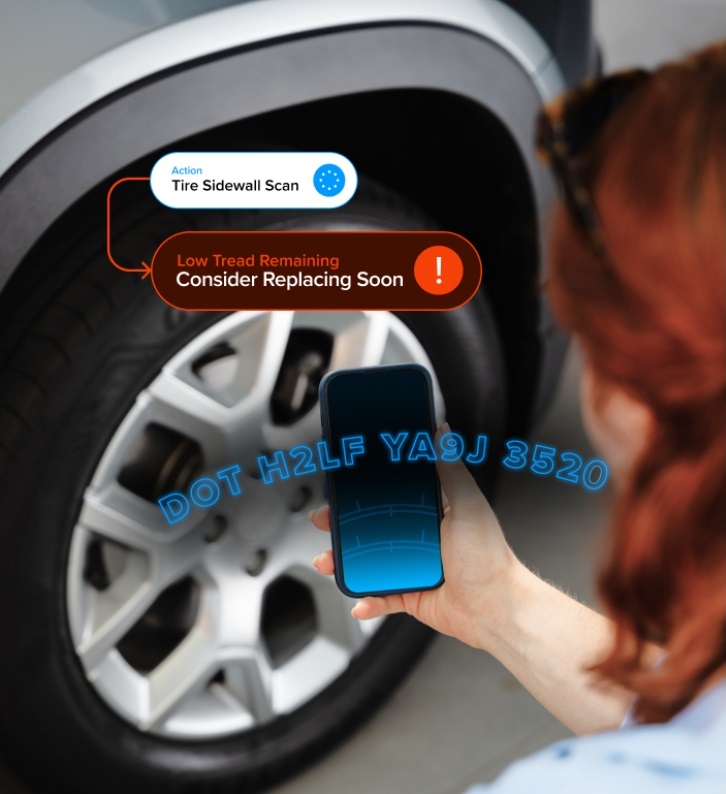
While acknowledging that real-world factors such as challenging lighting conditions or extreme tyre wear can influence accuracy, he assured that “our tools are continuously trained and tested on a wide range of conditions to ensure performance is reliable in the environments where they’re used most. The result is not only faster inspections, but repeatable, verifiable outcomes that technicians and service managers can trust implicitly.”
The profound impact of solutions like TireBuddy is clearly evident in Anyline’s impressive client base, which spans a wide array of automotive industry players, including leading automotive original equipment manufacturers (OEMs), extensive aftersales networks and crucial logistics providers. One of their most significant and long-standing partners is Discount Tyre, which stands as the largest independent tyre and wheel retailer in the US.
Discount Tyre leverages Anyline’s cutting-edge technology to streamline their tyre inspection processes and digitise key vehicle data across their vast service network, significantly enhancing their operational efficiency and customer service.
“Our ability to serve both independent dealers and enterprise-scale players is a key strength. Whether it’s through our TireBuddy app or via custom integrations using the Anyline SDK, we help clients bring mobile inspection capabilities directly into the hands of technicians – no matter the size or complexity of their operation. This flexibility ensures that businesses of all scales can benefit from our advanced AI,” averred Elustondo, highlighting Anyline’s versatile approach.
Beyond the automotive sector, Anyline’s solutions are also used by government agencies for vehicle data verification, rental fleets for efficient vehicle check-ins and commercial vehicle operators seeking to improve safety, compliance and overall operational efficiency through AI-driven inspections. This broad applicability underscores the universal need for accurate, mobile data capture.
A GLOBAL FOOTPRINT AND FUTURE VISION
Anyline’s global reach extends significantly to India, a market Elustondo described as “important for us – both in terms of talent and innovation partnerships.”
He highlighted a particularly significant collaboration that exemplifies Anyline’s impact in the region: a partnership with Tata Power Delhi Distribution (Tata Power-DDL). Through this collaboration, Anyline launched an industry-first mobile meter reading solution utilising OCR (Optical Character Recognition) and AI-powered anti-spoofing technology. This innovative solution was deployed across North Delhi, dramatically improving billing accuracy, reducing non-technical losses and streamlining field operations for an astounding 1.9 million metres.
“That collaboration showcased how AI and mobile data capture can solve real-world infrastructure challenges at scale,” Elustondo added, pointing to the measurable impact on operational efficiency and data quality. This project marked a pivotal moment, being the first time Tata Power-DDL had adopted mobile OCR for utility meter reading, demonstrating a clear shift towards digital transformation in critical infrastructure.
Looking ahead, Anyline remains steadfastly committed to its software-first approach, a strategic decision that deliberately avoids the need for specialised, proprietary hardware.
“Our focus is on delivering AI-powered software solutions that run seamlessly on everyday mobile devices like smartphones and tablets. This software-first approach eliminates the need for specialised hardware, making our technology far more accessible, scalable and cost-effective for users around the world. It means businesses don’t have to invest in new, expensive equipment; they can leverage the devices their teams already use, significantly lowering the barrier to adoption,” Elustondo affirmed.
This philosophy ensures that Anyline’s solutions are not just technologically advanced but also practically viable for a wide range of businesses globally.
The company’s future plans involve a continuous and ambitious expansion of its AI-powered capabilities specifically tailored for the automotive industry. “Expect more integrations, real-time diagnostics and predictive maintenance features – all accessible via mobile,” Elustondo revealed, hinting at a future where vehicle maintenance is more proactive and data-driven. These advancements promise to further empower technicians with instant insights, enabling them to identify potential issues before they escalate and provide even more precise recommendations to customers.
The company shared that TireBuddy, in particular, stands as a powerful testament to its responsiveness to genuine industry needs and its ability to rapidly develop and deploy effective solutions.
“One development we are especially proud of is TireBuddy. It was built in direct response to feedback from the field, where independent dealers and service teams told us they needed a faster, more accurate way to assess tyre health without investing in expensive equipment or retraining their teams. We listened and we delivered,” Elustondo stated.
The app’s success has been resounding, with positive feedback echoing across the industry. “The response so far has been incredibly positive. Dealers are telling us it is improving the professionalism of their service while also reducing the friction that often comes with inspection-based upselling. It transforms a traditionally manual process – DOT code reading, tread depth measurement, VIN capture – into a digital workflow that’s intuitive, consistent and verifiable. It helps technicians provide clearer documentation, make more confident recommendations and ultimately earn greater trust from customers,” Elustondo said.
He envisions TireBuddy as far more than just a single product: “We see TireBuddy not just as a product, but as the foundation of a broader ecosystem of AI-powered tools designed to support the future of vehicle service – where data, transparency and customer trust take centre stage. This is about building a more efficient, reliable and customer-centric automotive service industry for tomorrow.”
Algorhythm's SemiCab Expands AI Collaboration With Apollo Tyres
- By TT News
- January 08, 2026
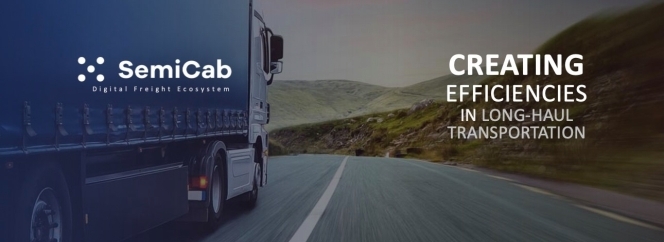
SemiCab, a subsidiary of Algorhythm Holdings, has secured a significant expansion to its existing Master Services Agreement with Apollo Tyres Ltd., a prominent global tyre manufacturer. Apollo Tyres, which serves major international markets and reports annual sales exceeding USD 5 billion, ranks among the world’s top 10 tyre producers. This enhanced partnership, building upon a commercial pilot initiated in September 2024, will see SemiCab manage freight transportation across 20 high-density corridors in India while increasing shipment frequency throughout a broader service region.
The expansion is projected to contribute up to USD 2.5 million in yearly revenue for SemiCab. The company delivers these managed services through its AI-driven Collaborative Transportation Platform, a cloud-based system engineered to lower logistics expenses, boost delivery precision and minimise empty truck miles. This technology offers complete live tracking and enhances network visibility without disrupting existing business processes. It seamlessly integrates with current transportation management software to automate tasks like ordering and invoicing and employs platform bots to gather data and handle routine operations. The system actively identifies and facilitates real-time collaboration between shippers and carriers to optimise efficiency.
Ajesh Kapoor, CEO of SemiCab Holdings, LLC, commented, “We are pleased to be a partner to such a prestigious multi-national company like Apollo Tyres, which is a globally recognised leader in the tyre industry. This new expansion of our existing relationship opens the door to immense growth opportunities for us. By leveraging our AI-powered platform, we are highly confident in our ability to drive significant cost efficiencies and delivery strong performance improvements for Apollo across much of India. This partnership represents a major step forward in our mission to revolutionise freight logistics in India, and we are excited about the growth it can drive for both of our businesses.”
Dunlop To Exhibit SENSING CORE Technology At CES 2026
- By TT News
- December 22, 2025
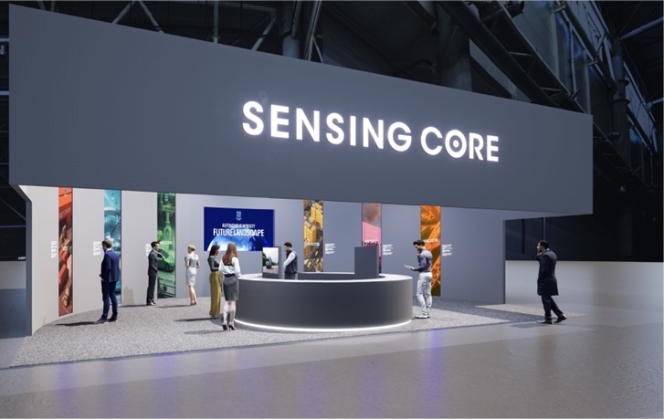
Dunlop will present its proprietary SENSING CORE technology at the Consumer Electronics Show (CES) 2026 in Las Vegas coming January. The prominent global trade event, scheduled for 6–9 January 2026, will serve as the platform for Dunlop to highlight the system's role in advancing safety for future autonomous mobility.
Central to the booth will be a display focused on evolving SENSING CORE into a broader technology platform. This exhibit will detail collaborative technical verifications with T2 Inc., a firm developing hub-to-hub autonomous trucking services. It will also feature integrated fleet service demonstrations combining the sensing technology with AI solutions from Viaduct, Inc., a US-based company acquired by Sumitomo Rubber in August 2025. The company plans to leverage this acquisition from 2026 to efficiently expand predictive maintenance services for fleet operators globally, including in Japan and European markets.
Further exhibit segments will immerse visitors in six future mobility scenarios, spanning logistics, public transportation and infrastructure. The company positions SENSING CORE as a foundational technology for safer autonomous driving, capable of gathering critical data on tyre and road surface conditions. This information is intended not only for direct vehicle control but also for cloud-based integration with broader societal data streams. Ongoing development efforts are aimed at supporting the realisation of a safer and more advanced mobility experience for all.
Getting A Grip On India’s Tyre Waste
- By Gaurav Nandi
- December 19, 2025

India’s mounting tyre waste problem has found a determined challenger in Home Zone Rubber Solutions, a young but ambitious company from Vapi, Gujarat. Founded just four years ago by stainless-steel-industry veteran Jitendra Agarwal, the recycler has quickly scaled to processing more than half a million scrap tyres annually with plans to double capacity through an upcoming IPO. Armed with cutting-edge Danish Eldan technology and a vision that blends environmental responsibility with industrial innovation, Agarwal is positioning Home Zone not just as a recycler but as a pioneer of India’s circular economy in rubber.
Home Zone Rubber Solutions, headquartered in Vapi, Gujarat, is rapidly establishing itself as one of India’s foremost tyre recycling companies. Established just four years ago by Managing Director Jitendra Agarwal, the company’s roots trace back to a legacy in stainless steel manufacturing. However, post-pandemic, Agarwal saw an opportunity to pivot towards environmental sustainability through tyre recycling owing to its immense potential but significant challenges.
Speaking exclusively to Tyre Trends, Agarwal said, “Our family has always been in the stainless steel business, but I have long been passionate about environmental issues and recycling. When the opportunity presented itself after lockdown, we grabbed it with both hands.”
Today, Home Zone processes around 5,000 tonnes of scrap tyres every month, which translates to over half a million tyres annually. Agarwal shared that with an upcoming initial public offering, the company plans to double this capacity, targeting recycling of up to 10 million scrap tyres annually.
 “This is a huge achievement because tyres are among the most hazardous wastes worldwide. They can take 150 to 200 years to decompose if left unchecked. They pollute landfills and oceans alike, so taking millions of tyres off the roads and recycling them is vital to protecting our environment,” Agarwal explained.
“This is a huge achievement because tyres are among the most hazardous wastes worldwide. They can take 150 to 200 years to decompose if left unchecked. They pollute landfills and oceans alike, so taking millions of tyres off the roads and recycling them is vital to protecting our environment,” Agarwal explained.
INNOVATIVE METHODOLOGY
At the heart of Home Zone’s process is a sophisticated tyre recycling line sourced from Denmark, known as Eldan. This machinery stands out as one of the most advanced globally, capable of reclaiming 99.9 percent crumb rubber granules from shredded tyres, claimed the executive.
“Separating components like steel is fairly straightforward, but the fibre and rubber separation is incredibly complex. Our line is the only one currently in India with a full Eldan setup, and it delivers unparalleled efficiency and quality,” Agarwal said.
The crumb rubber generated is classified in mesh sizes in granular levels ranging from 5 up to 20 mesh currently. The company is working towards finer mesh granules going up to 40 and eventually 80 to 120 mesh, which are essential for manufacturing new tyres from recycled material. Agarwal notes that this progression is gradual given the technological challenges of grinding tyres to such fine granularity in a controlled environment.

The applications for crumb rubber extend beyond new tyres. The company’s crumb rubber is widely used in diverse sectors including sports turf grounds, anti-slip tiles, automotive components, conveyor belts, industrial footwear and infrastructure projects.
The company maintains a research and development team, including experts in robotics technology, to ensure product quality and innovation. “As we move into finished products ourselves, quality testing and consistent innovation are vital,” Agarwal stressed.
One particularly unique product is the cow mat, exported from India to dairy-producing countries worldwide. Made from crumb rubber, these mats improve cow comfort, reduce blood pressure of animals and consequently increase milk production. This innovation exemplifies how recycling can impact even agricultural practices.
MARKET WATCH
While Home Zone currently primarily serves the domestic market, exports are an important growth area. Plans include selling crumb rubber and finished mats to markets in the Middle East, Europe and China. Agarwal sees China as a significant opportunity, especially for finished rubber products rather than just raw crumb rubber.
To support this expansion, the company has identified a 25-acre land parcel near Mundra port, approximately 9.5 kilometres from the port itself. This facility aims to be a fully integrated recycling and manufacturing hub, where crumb rubber will be processed into finished products before export. The target for beginning operations is late 2026.
Furthermore, while India remains the third largest generator of scrap tyres globally, Agarwal pointed out that the supply of these tyres for recycling is fragmented and inefficient, forcing Indian recyclers to import scrap tyres from the US and Europe, often at lower costs due to government subsidies and more streamlined collection systems abroad.
To tackle this, Agarwal has launched Re-Tyre Bazar, India’s first organised scrap tyre collection network. Initially rolling out centres in states like Tamil Nadu, Telangana, Rajasthan, Maharashtra and Madhya Pradesh, this initiative aims to consolidate the fragmented supply chain and enable recyclers to source Indian scrap tyres exclusively in the near future.
“If we can organise this chain effectively, we won’t need imports except as a bonus. That would validate the model and mark a major step forward for the Indian recycling industry,” Agarwal said.
Re-Tyre Bazar operates as an independent company and is intended to serve the entire Indian recycling sector, rather than being exclusive to Home Zone Rubber Solutions.
FOCUS VIEW
Agarwal highlighted that about 70 percent of Indian scrap tyres come from the truck and bus segment. “TBR scrap tyres generally lend themselves to higher quality recycling applications, compared to passenger car tyres,” he explained. This focus area presents significant opportunity for the company as it scales production and refines crumb rubber quality.

Addressing common misconceptions about tyre quality, he stated, “Many believe that American and European tyres are superior, but it’s not true. Indians may even have a 5 to 10 percent advantage due to how tyres are used and road conditions.”
He was also candid about rumours that some importers misuse scrap tyre imports licenses, selling raw material rather than using it in production. “Such misuse is limited to a small minority, but government agencies must enforce regulations strictly to protect industry credibility,” he said.
On the regulatory front, Agarwal views government initiatives such as Extended Producer Responsibility (EPR) as positive developments that place recycling obligations on tyre manufacturers. However, careful enforcement is needed. He also advocates for consumer awareness campaigns and incentives like green labelling for recycled products.
“Consumers want environmentally friendly choices. A green label on products made from recycled rubber could boost demand and support the circular economy,” Agarwal noted.
FUTURE PROSPECTS
The upcoming IPO is a major step towards funding Home Zone’s expansion. Public filings indicate the company aims to increase production capacity from around 57,000 metric tonnes annually and invest in new machinery and facilities.
“We expect the next decade to be very exciting for the industry,” Agarwal said confidently.
Reflecting on the company’s environmental mission, Agarwal concluded, “We inherited this planet from our parents and grandparents. If we cannot leave it better, let us at least leave it as we found it.”
- Ian Andrews
- NTDA
- National Tyre Distributors Association
- National Tire Conference and National Tire Awards
Charting A New Course For NTDA
- By Gaurav Nandi
- December 12, 2025
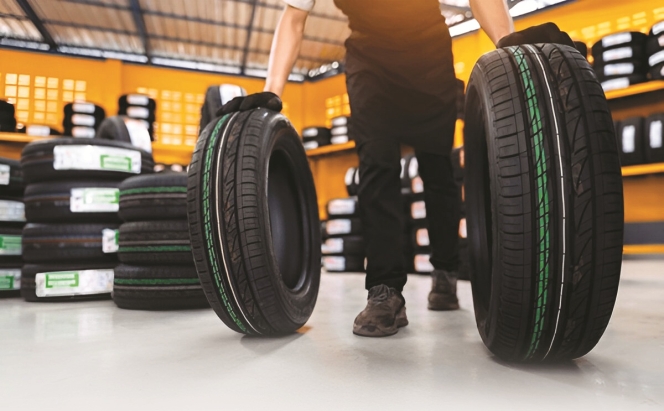
Ian Andrews steps into the role of NTDA Chief Executive at a precarious moment for the UK tyre industry, where skills shortages, demographic shifts and mounting environmental pressures threaten to outpace the sector’s readiness. New to tyres but not to membership organisations, Andrews must prove his ability to turn fresh perspective into actionable solutions bridging gaps in recruitment, diversity and sustainability while convincing members that the nearly century-old association can adapt quickly enough to safeguard its relevance.
Ian Andrews, the newly appointed Chief Executive Officer of the National Tyre Distributors Association (NTDA), has embarked on a mission to address urgent challenges within the UK tyre sector, undertaking a comprehensive strategy to tackle recruitment issues, enhance member engagement, promote collaboration and advance environmental sustainability.
Coming from two decades of senior leadership in membership-based organisations but new to the tyre industry itself, Andrews brings a fresh perspective combined with seasoned leadership skills to the nearly 100-year-old trade association.
Upon assuming his role, Andrews emphasised a grounded approach focused on learning directly from NTDA members. “My immediate priorities are to understand the challenges and opportunities that face the tyre sector here in UK, principally, but globally as well,” he shared.
 Approaching the role without preconceived notions, he aims to listen and respond to member feedback. Early indications point to recruitment and careers as pressing issues. “Careers and recruitment seem to be one of the early areas of work that we need to focus on. There are significant recruitment issues here in UK, not just in tyres but across the whole motor vehicle sector,” said Andrews during the exclusive interview with Tyre Trends.
Approaching the role without preconceived notions, he aims to listen and respond to member feedback. Early indications point to recruitment and careers as pressing issues. “Careers and recruitment seem to be one of the early areas of work that we need to focus on. There are significant recruitment issues here in UK, not just in tyres but across the whole motor vehicle sector,” said Andrews during the exclusive interview with Tyre Trends.
TACKLING GAPS
The UK tyre sector faces a looming demographic shift with a substantial number of experienced professionals expected to retire over the next decade, risking a critical loss of institutional knowledge and technical skills.
Andrews warned, “The sector has got a significant number of people who will retire in the next 10 years. So there’ll be a significant loss of knowledge and skills.”
While larger companies have training and HR departments to manage recruitment and development efforts, smaller businesses face a heavier burden. “They are doing it themselves, and if you’re employing somebody new, then it’s a huge commitment to train and develop that person until they start generating revenue and making a return on the investment,” he explained.
Recognising the sector’s traditionally male-dominated nature, Andrews stressed the imperative of building a more diverse workforce. “We need to look at getting a better and more diverse workforce. Moreover, any business should be reflective of the community it’s working in. If you’re in an ethnically diverse community, your workforce will be best when it’s ethnically diverse,” he noted.
Yet he acknowledged the cultural shift required will take time and that’s not going to happen overnight.
Furthermore, Brexit has complicated recruitment by reducing access to talent from Europe, shifting the focus predominantly to UK-based recruitment. “Most of the tyre sector focus is on UK recruitment, perhaps more so now after Brexit,” Andrews noted.
Despite these constraints, his message was clear: “If we keep doing what we’ve always done, we’ll end up with what we’ve always had. So we need to look at doing different things. Reaching different groups of people.”
To address the skills and professionalism gap, NTDA has expanded its tyre technician licensing schemes significantly. Andrews reported robust uptake with over 16,000 technicians licensed by the NTDA.
This growth is particularly notable in the past two years. Acknowledging the specialised skills needed in emerging technologies, he highlighted the introduction of licensing for electric vehicle tyre (EV) technicians. “The whole electric vehicle is bringing a new plethora of challenges and opportunities. It’s a different skill set. Everything is different in EVs,” he said.
ENGAGING MEMBERS
Member engagement and retention stand as foundational pillars for Andrews’s leadership as well. He aims to increase members’ awareness of
NTDA’s benefits and encourage their active participation. “Often, members pay their membership fee but don’t really explore all the member benefits,” he observed.
Plans include surveying members on their benefit awareness and usefulness while exploring additional services that may be introduced. To foster greater connection, Andrews is looking at enhancing local engagement through regional events across UK, alongside leveraging digital platforms.
He mentioned, “We run large national events in October, including our National Tire Conference and National Tire Awards, which are very well supported. But we need to explore how else we can engage with members on a more local basis for physical events but also on a digital basis.”
His previous experience includes organising half-day digital forums with speakers and interactive participation, offering participants the flexibility to attend live or watch recorded sessions later.
Collaboration within the sector forms a cornerstone of Andrews’s strategic outlook. While mindful and cautious of anti-competitive regulations, he believes substantial benefits can come from sharing resources and best practices, especially on recruitment and sustainability challenges.
“There’s always greater advantage in collaboration than there is in competition. Who is doing it well? What are they willing to share? What resources do they have that might be made more widely available?” he asserted.
At the same time, he acknowledged the necessity of protecting commercially sensitive information: “There will always be things that are commercially sensitive and need to be kept such, but that’s fine. Let’s collaborate on the 90 percent that isn’t commercially sensitive and keep the 10 percent that is.”
ENVIRONMENTAL STEWARDSHIP
Environmental stewardship and sustainability have emerged prominently on the NTDA agenda. Andrews described active engagement with the UK Environment Agency regarding the management of end-of-life tyres.
“We’re engaged with the agency that is responsible for where end-of-life tyres end up, making sure that they end up in the right place at the right time and don’t clog up our rivers, canals and green spaces,” he stated.
Growing government interest in tyre runoff impacting watercourses may further intensify oversight. “There’s government interest in where runoff from tyres is ending up in the water courses,” Andrews noted, emphasising the importance of proactive dialogue. “With all aspects of working with government, it’s about getting to them before they get to you.”
He committed to openness and transparency if issues arise, stating, “If there’s an issue, then be upfront and open that there’s an issue and we’re working on it and there is a solution.”
Looking to the future, Andrews identified his plans for NTDA’s next three to five years that include member growth, recruitment and environmental awareness. “Internally, it is driving member engagement and member value and therefore driving up member growth,” he shared.
Externally, recruitment and environmental matters are key concerns. Noting that larger companies typically have sustainability specialists, Andrews highlighted the need to support smaller businesses struggling to navigate sustainability practices. “Helping the whole sector regardless of the size of the business is important,” he said.
Throughout the interview, Andrews repeatedly underscored the fundamental role of the tyre industry in public health and safety. “The tyre sector is fundamentally about health, safety and well-being,” he emphasised.
“You wouldn’t put your most precious things anywhere without some assurance that they’re going to be safe. Let’s not put our partners, children, parents into vehicles without some assurance that the tyres are going to do the job that’s expected of them,” he asserted.
Based in Halesbury, Buckinghamshire, Andrews expressed enthusiasm for leading the NTDA forward. While new to tyres, he is confident in his ability to learn quickly with the board and executive council’s support. “The tyre stuff I will learn. When I joined the BPCA, I knew nothing about pest control. Now I’d like to think the same will be true of tyres. It’s all learnable,” he said.
He also stressed his readiness to bring expert colleagues to discussions, for example, when facing government ministers, to ensure the expertise needed is present.
As he takes charge of NTDA during a time of transformation, Andrews seeks to position the association as the collective voice of the tyre sector, delivering professional standards and fostering a collaborative, diverse and sustainable industry that prioritises safety and well-being.







Comments (0)
ADD COMMENT